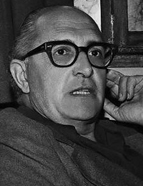

In fact, this book has a variety of meanings and offers an exemplary depiction of the people, mentalities, and behaviours of the time. Simultaneously, in this work Jorge de Sena, a keen connoisseur of Spanish life (he wrote over forty articles and essays on Spanish literature and culture), explores the Spanish stereotypes that had been disseminated for centuries in Portugal. One of the myths in the novel is that, unlike the melancholic, lugubrious Portuguese people, the Spanish are noisy and festive, they gesticulate and address each other as “Dons”, drawing attention to themselves wherever they go (Sinais de Fogo, p. 78). By reproducing popular beliefs and national jokes about the people from this neighbouring country, the writer depicts a scenario populated with prostitutes, dancers, and other sensual Spanish women (Gago, “Sinais de Espanha...” [Signs of Spain], p. 278). We are led to believe that in this novel Sena wished to return to the mental framework of his youth and offer the reader a full picture of society. Therefore, with its realistic descriptions of the Civil War, of life under a dictatorship and the all-pervasive fear in Portugal, and even with its examination of the “myths” around the Spanish, this novel is crucial for those driven to further investigate themes related to the Spanish Civil War, and in particular its relationship with Portugal.
The fact that it is difficult to refer to Jorge de Sena as a poet, novelist or critic is because he excelled in different areas. While this alone is reason enough for scholars connected to history to read this author, there is still much more to learn about “Jorge de Sena, the historian”. It may be inferred from some of his essays that history, rather than a tool used to contextualize his artistic work, emerges as part of an interdisciplinary critical methodology that allows him to substantiate theories, to broaden his understanding, and to challenge concepts (“classic”, “symbolist”, “baroque” or “naturalistic”) and traditional periodisation. Jorge de Sena, after all, historicised the most important published material on literature in Portugal, both in ancient and modern times. One needs only to consider his analyses on Modernism, Romanticism, or the Renaissance in texts such as “Tentativa de um Panorama Coordenado da Literatura Portuguesa de 1901 a 1950” [Attempting to Define a Coordinated Overview of Portuguese Literature] (Estudos de Literatura Portuguesa-II [Studies on Portuguese Literature - II), or even his research on Machiavel and Marx to observe how through historical research, he manages to attain a comprehensive overview and to inter-link literature with the lifestyles of each period and setting. Based on the assumption that Portuguese literature was largely an “official” literature, the heir of a feudal and oligarchical mentality stemming from the Middle Ages (Estudos de Literatura Portuguesa - I, p. 11), Sena was driven to probe national literary history by his search for innovative interpretation paths for themes deemed unquestionable by the Portuguese Academy, regarded by the author as being prone to dogmatism and averse to critical thinking.
